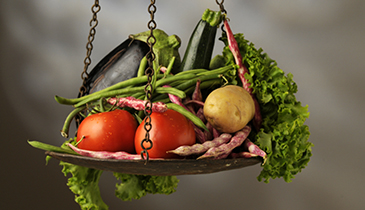 While most people know blood sugar control is important for preventing and treating Diabetes, it is not always obvious how blood sugar control affects our daily lives. Our brain relies on glucose for fuel so it is important to keep blood sugar balanced to feel good, have energy and think clearly. The goal with “balancing” blood sugar is to prevent a sharp rise or fall in blood sugar levels. The body uses hormones, namely insulin and glucagon, to maintain a normal blood glucose level, but we can help it by eating in a way that stabilizes this level.
While most people know blood sugar control is important for preventing and treating Diabetes, it is not always obvious how blood sugar control affects our daily lives. Our brain relies on glucose for fuel so it is important to keep blood sugar balanced to feel good, have energy and think clearly. The goal with “balancing” blood sugar is to prevent a sharp rise or fall in blood sugar levels. The body uses hormones, namely insulin and glucagon, to maintain a normal blood glucose level, but we can help it by eating in a way that stabilizes this level.
Eating this way will help prevent blood sugar from getting too high or too low. Symptoms that can occur as a result of hypoglycemia (low blood sugar) include fatigue, headaches, shakiness, weakness, sweating, abdominal pain, palpitations, blurred vision, mental confusion, impaired memory, depression, insomnia, irritability, muscle cramps, dizziness and vertigo. Sugar cravings may be a sign of hypoglycemia because the brain is telling your body it needs fuel and carbs are the quickest way to get fuel. Hypoglycemia can be a result of not eating frequently enough or eating meals high in refined carbohydrates that stimulate a large release of insulin followed by too great a drop in blood sugar. The key is to prevent your body from getting to a hypo state, because it is in this state that your body overrides any good decision making powers and bullet trains you right to the simple carbs. This is what the Daniel Plan refers to as a “food emergency”.
How
-
- – Eat small, frequent meals every 2-3 hours
-
- – Eat breakfast! (not just a cup of coffee)
-
- – Eat satiating foods (healthy fats and protein) that keep you full longer.
-
- – Combine complex carbohydrates with protein and fat. Don’t eat carbs alone.
-
- – Avoid simple, refined sugars including fruit juice, soda, cookies, etc.
-
- – Eat foods with a low glycemic index.
-
- – Increase fiber intake. The best sources of fiber are leafy greens, fruits, veggies, beans and legumes. This does not mean eat more cereal.
-
- – Avoid caffeine because it may worsen hypoglycemia symptoms.
-
- – Exercise! Exercise increases chromium levels and improves insulin sensitivity.
-
- – In some cases, supplementation with chromium is advised to regulate glucose control, usually at a dose of 500-1000mcg/day.
Snack ideas:
-
- – Hummus and veggie sticks
-
- – A handful of nuts with a piece of fruit
-
- – Nut butter (almond, cashew or peanut butter)
-
- – Hard-boiled egg
-
- –
 Sardines on crackers
Sardines on crackers
- –
-
- – Edamame (organic soy beans)
-
- – Smoked or canned wild salmon
-
- – Avocado slices wrapped in turkey
-
- – Pumpkin seeds
-
- – Plain Yogurt with nuts/seeds and fruit and small amount of honey if needed
-
- – Olives
-
- – Artichoke hearts
Disclaimer: The information provided on this website is not meant to diagnose, prevent, treat or cure any disease. Never delay or disregard seeking professional medical advice from your doctor or other qualified health care provider because of something you have read on this page.




